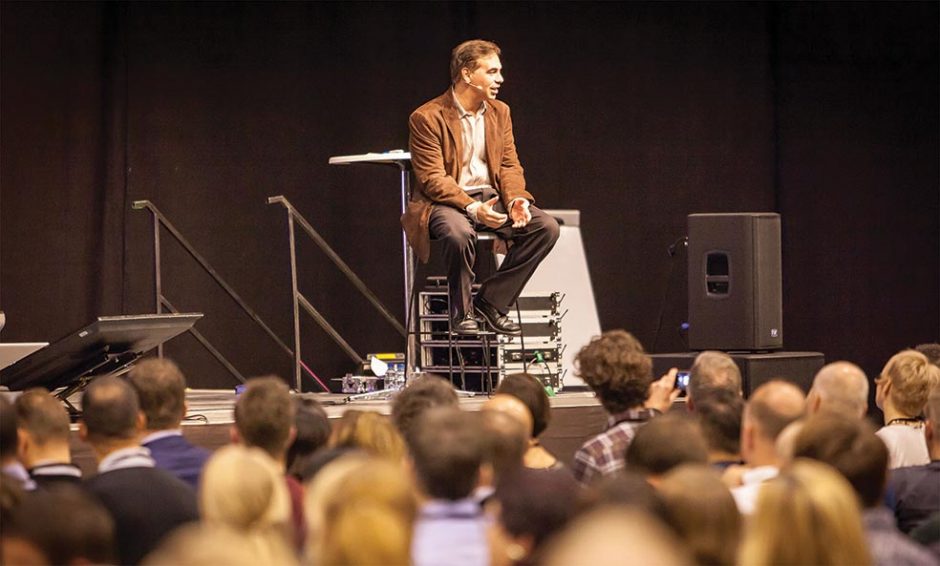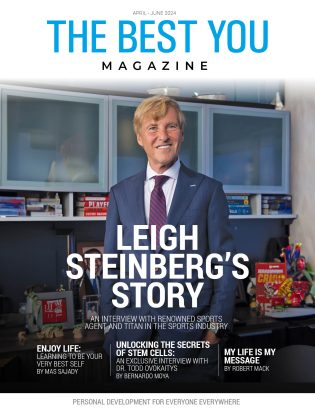Life coach Michael Neill on making the impossible possible
For the last decade, Michael Neill has been sharing principles that enable people to create
more than they ever thought possible. Thousands of people from around the world have been inspired to reconnect with their creative sides, getting their important ideas and projects out of their heads and into the world.
Neill explains that regardless of the breakthrough results you desire in business or personal matters, you can learn to make the impossible possible.
Below is an excerpt from Neill’s recent book, Creating the Impossible:
A couple years ago, I was chatting with author Jack Canfield and asked him if he was busy at the moment. He took a few seconds to consider his reply. ‘I’ve got a lot on,’ he said, ‘but I’m not particularly busy.’
This points to a key distinction made in Cal Newport’s insightful book Deep Work: that business is often a substitute for productivity, not its cause.
According to Professor Newport, one of the reasons we spend so much time on email, social media, and ‘available’ to interruption is because it creates the experience of being continually engaged in activity, which leads us to the false conclusion that if we’re busy, we’re being productive.
Yet, a more practical definition of productivity is this: the ratio between your effort and the reward you get for that effort.
Notice, this has nothing to do with our level of activity, business, hard work, or stress. If we get high levels of reward for each effort, we are highly productive; if we don’t, no matter how much time and energy we’re putting into the job, we aren’t. As Sun Tzu says in The Art of War, ‘What is essential in war is victory, not prolonged operations.’
Typical productivity systems are based on the idea that there is always a 1:1 ratio between effort and reward, so essentially, one unit of effort will bring one unit of reward. If you want to increase the amount of reward, you need to increase the amount of effort. That’s why time and productivity management systems abound. In the 1:1 model, productivity is a numbers game where you always need to do more to get more.
Contrast that with a time when you experienced diminishing returns. Perhaps you were exhausted, or you’d been working on something for so long you couldn’t see the wood for the trees. In those situations, we could say the ratio of effort to reward was 3:1, where it took at least three units of effort to receive that same one unit of reward.
Or let’s turn that experience on its head. What if it were possible to experience exponential returns on your efforts? So that instead of 3:1 or even 1:1, you experienced 1:2, 1:3, 1:5, all the way up to 1: infinity. I call this high reward to effort ratio ‘effortless productivity,’ not because you don’t do anything, but rather because your rewards for your efforts are way out of proportion to the amount of effort you actually put in.
Here’s another way to think about it: Higher levels of productivity don’t come from finding ways to squeeze more oranges; they come from getting more juice to the squeeze.
This doesn’t mean that you don’t have to put in the hours. I don’t know anyone who consistently produces quality results over time who doesn’t. But whether those hours are experienced as hard work or even business is nothing more than a reflection of your state of mind. And how much you get out of those hours is a function of two simple variables – enjoyment and engagement.
Trying to get things done in the world without enjoyment and engagement is like driving a car with a 12-cylinder engine but only two cylinders firing – everything feels like an uphill climb. But, once we go all in and throw ourselves into whatever we’re doing, all of our mental chatter fades away and we’re free to be inspired about and creative with what’s in front of us. Enjoyment and engagement are game-changers, because they make everything start to feel easier. Like driving that same car with the big engine firing on all cylinders, once we throw ourselves into any endeavour and allow ourselves to fully enjoy it, even the steepest challenge feels well within our capacity.
And, the beauty of this approach to productivity is that it feeds on itself. That is, when I’m enjoying myself, I have a much richer experience of whatever it is that I’m doing. I’m less distracted, more present, and able to ride the stresses, strains, and variances of a typical day with a lot more ease and grace. And, when I’m fully engaged, I perform better. I’m able to contribute more. I’m incredibly capable. I’m surprisingly wise. My curiosity is unleashed, everything becomes fascinating, and I inevitably begin to enjoy whatever it is that I’m doing.
In this sense, effortless productivity isn’t about working harder, or even smarter. It’s about showing up to a project with a sense of play and a heart full of joy, fully committed to the task at hand and completely open to whatever may come. It’s about throwing yourself into things as if your life depends on it, while knowing full well that it doesn’t.
For more information visit www.michaelneill.org
GIVEAWAY
To win one of two signed copies of Michael Neill’s book Creating the Impossible, email The Best You at [email protected] with the subject ‘The Impossible’.





